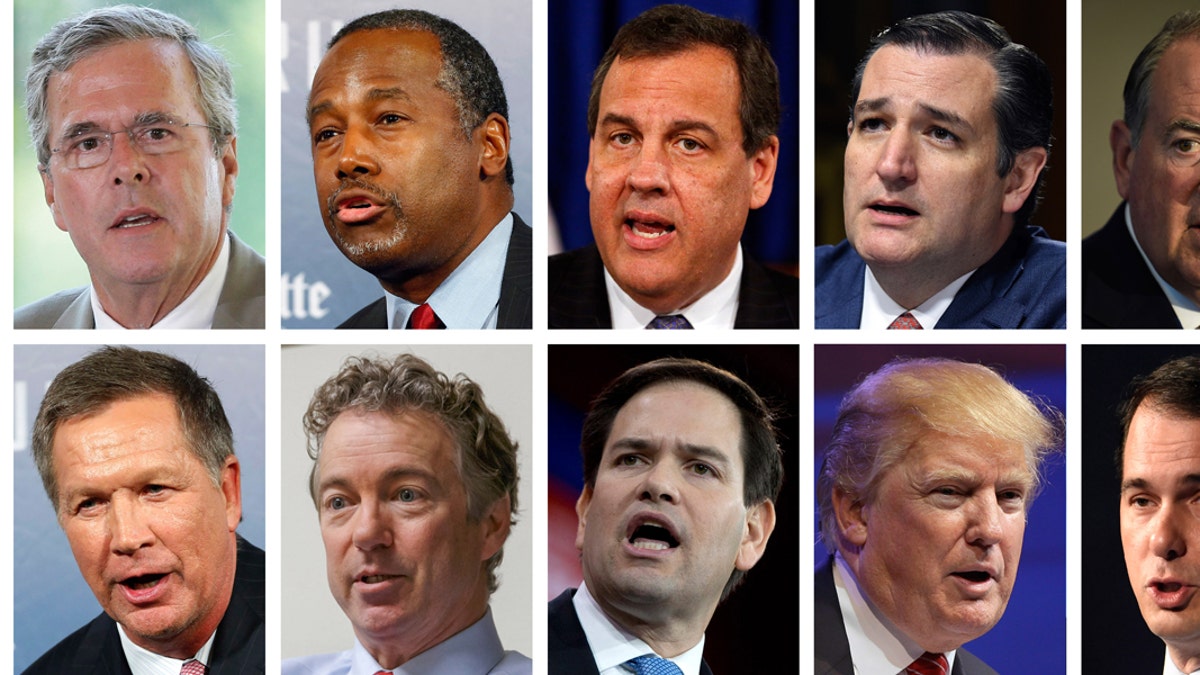
With the parade of Republican nominees stepping onto the stage in Cleveland and using social media to reserve their place at the electoral starting gate, the candidates read as an anthropological study of the Grand Old Party.
From establishment favored moderates like former Florida Governor Jeb Bush to Tea Party favorites like Texas Senator Ted Cruz, the first debate stage in Cleveland will serve as a lesson in the progression of the Republican Party from Eisenhower onward.
Yet it’s difficult to think of recent nomination process where one state influenced the candidates more than Texas has the 2016 field. In fact, smart handicappers seeking to divine who will be accepting the party nomination next year could look at the recent eras of Texas politics when trying to divine who will win.
Consider:
·Former Florida Governor Jeb Bush. Bush has almost legendary ties to the Lone Star state. With his father, George H.W. Bush having served as a congressman before taking a seat behind the Resolute Desk and his brother George W. Bush making inroads to the state’s Hispanic population that could serve his brother well to the this day, he ably represents the era when Republicans were in the minority and a certain amount of compromise was both possible and necessary. In fact, his son, current Texas Land Commissioner George P. Bush is seen as a presidential candidate in waiting himself – continuing the family’s legacy in the state, perhaps beyond.
·Senator Rand Paul. While Paul hails from Kentucky, his father’s long tenure as a member in the Texas delegation has given him authentic lineage in Texas. Moreover, Paul has already made Texas a key part of his operation, opening an office in Austin as one of his first efforts as a candidate. His lack of a super-PAC sugar daddy is worrisome, yet Paul’s ability to connect with the libertarian wing of the party nationally resonates especially strongly in Texas, where even routine military exercises are the source of gubernatorial action.
·Governor Rick Perry. The former Texas governor often looks and sounds like a Texas politician straight out of central casting – even if at times it isn’t clear whether he’s starring in a drama or comedy. Still, Perry’s record as governor, particularly as a job creator, is tough to argue with and if he can recapture the momentum that briefly had him atop the 2012 field, he could have a legitimate moment before it’s all said and done. Perry’s recent takedown of Trump, calling him a “cancer on conservatism” was a bold statement and served to remind voters that he still is a force to be reckoned with.
·Senator Ted Cruz. Few candidates thus far have engendered more surprise than Cruz. Since his well-executed debut on the political stage he has flashed the intellect and talent that had him arguing before the Supreme Court at 32 years’ old. Cruz has charmed donors and the grassroots alike, while commanding the stage at evangelical confabs like the Faith and Freedom Conference and displaying a quirky sense of humor about the whole routine. While the senator remains a longshot to win, it’s fairly clear no one is having more fun with the campaign process. Moreover, while the senator is a fairly recent addition to Texas, he captures the far-right political sentiment of the state.
·All the others. While they may not hail from the Lone Star state directly, top-tier candidates like Florida Senator Marco Rubio, Wisconsin Governor Scott Walker and even those with long-shot bids like New Jersey Governor Chris Christie have already begun a charm offensive that will yield attention, and more importantly, fundraising dollars.
So what can we expect to see in this battle for Texas writ large?
While the power of Donald Trump is a factor no one could have predicted, it remains to be seen whether he is the personification of voter’s frustration or really built to last. Either way, as "The Donald" is learning, organization is the coin of the realm in every presidential race. The incredible fundraising haul of Jeb Bush provides him with a great opportunity to fund an organization, if he can overcome inherent skepticism from the conservative faithful about his moderate stances on education and immigration. The ability of Cruz, Paul and to some extent Perry to rally the traditional base will be make-or-break for their campaigns as a whole and stand as a bulwark against the largess of the Bush operation.
The most entertaining dynamic, of course, will be the potential infighting over different political legacies. For instance, which among Perry, Cruz and Paul can claim to have “led the fight against ObamaCare” – Perry refused to establish a federal Medicare (ObamaCare) exchange, while Paul and Cruz were among the most vocal opponents. Additionally, the differences between Bush and Paul on issues like foreign policy are almost galactic in their width and breadth. How each of them articulate those difference will be crucial in determining who can carry the shifting, but still vital base of the party.
As the 2016 race begins to unfold in earnest, yielding surprises like the early Teflon coating on Trump, the eyes of Texas will be upon the favored sons they’ve lent to the royal rumble that is brewing – a fascinating subplot in a race full of them.
